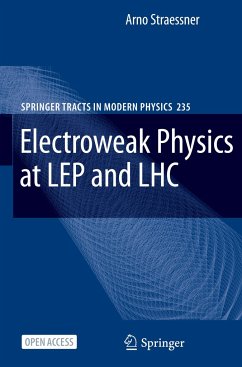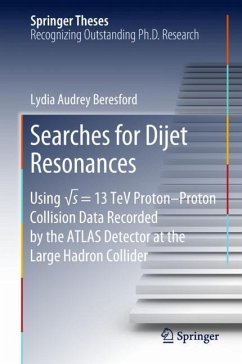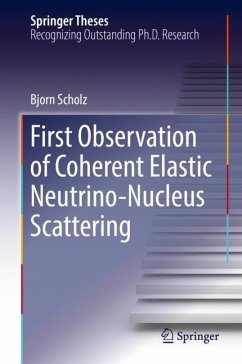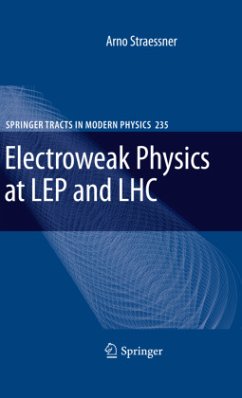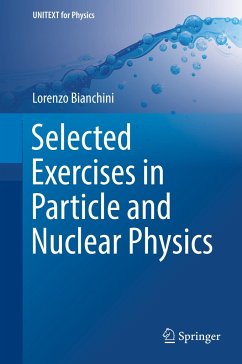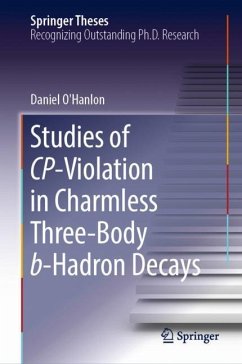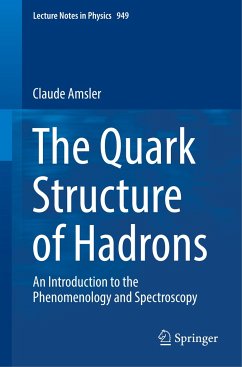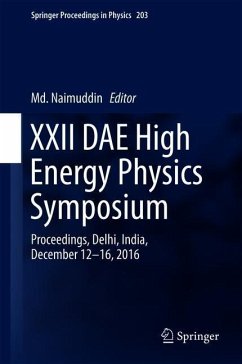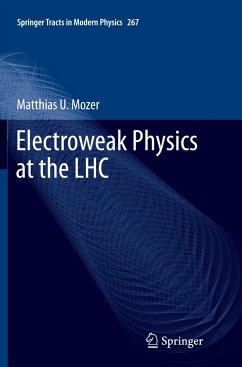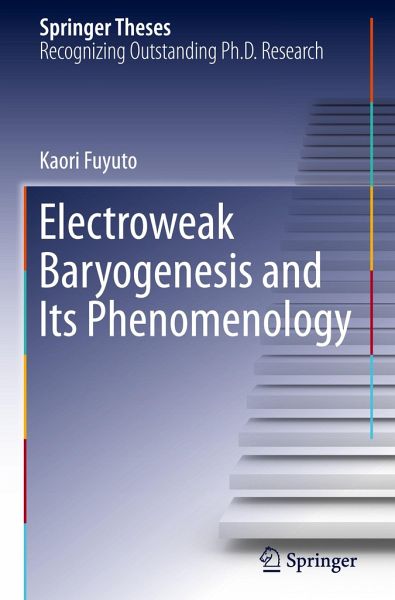
Electroweak Baryogenesis and Its Phenomenology

PAYBACK Punkte
38 °P sammeln!
This thesis focuses on one of the mechanisms for solving the baryon asymmetry of the Universe (BAU) which is a long-standing open question in both particle physics and cosmophysics. Electroweak baryogenesis (EWBG) is one attractive hypothetical scenario to solve this mystery because it can be verified by collider experiments. The author aims to clarify the possibility of EWBG, and to show its verifiability using the Higgs physics and electric dipole moments (EDMs) of an electron, neutron, and proton.The thesis begins with a review of the BAU and EWBG. Subsequently, the possibility of EWBG in o...
This thesis focuses on one of the mechanisms for solving the baryon asymmetry of the Universe (BAU) which is a long-standing open question in both particle physics and cosmophysics. Electroweak baryogenesis (EWBG) is one attractive hypothetical scenario to solve this mystery because it can be verified by collider experiments. The author aims to clarify the possibility of EWBG, and to show its verifiability using the Higgs physics and electric dipole moments (EDMs) of an electron, neutron, and proton.
The thesis begins with a review of the BAU and EWBG. Subsequently, the possibility of EWBG in one effective model is discussed, which can be applied to some motivated physics beyond the Standard Model. Numerical analyses of electroweak phase transition and sphaleron solution are presented, and the closed time path formalism is also explained to estimate the BAU. After essential calculations for investigation of the possibility of EWBG, the relationship between the BAU andEDMs isdescribed. Through the discussion of the result, it is concluded that both EDMs and the Higgs physics verify the scenario completely. The whole discussion in this thesis causes us to accept the current situation that is ripe for verification of EWBG.
The thesis begins with a review of the BAU and EWBG. Subsequently, the possibility of EWBG in one effective model is discussed, which can be applied to some motivated physics beyond the Standard Model. Numerical analyses of electroweak phase transition and sphaleron solution are presented, and the closed time path formalism is also explained to estimate the BAU. After essential calculations for investigation of the possibility of EWBG, the relationship between the BAU andEDMs isdescribed. Through the discussion of the result, it is concluded that both EDMs and the Higgs physics verify the scenario completely. The whole discussion in this thesis causes us to accept the current situation that is ripe for verification of EWBG.



